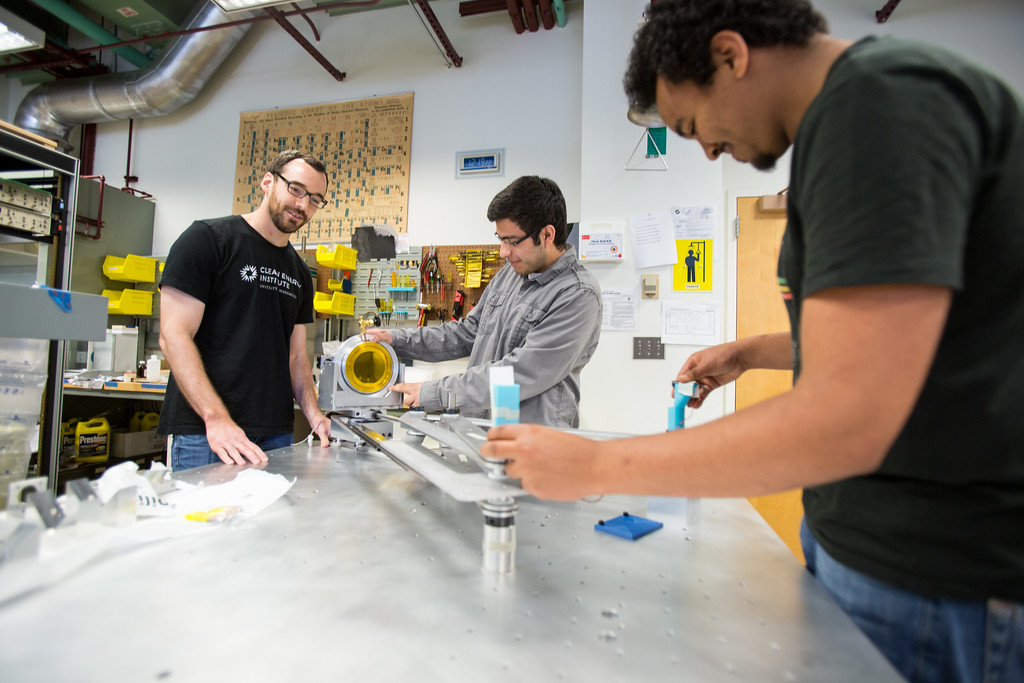Application Update
We are not currently accepting applications for the CEBR REU program as this program has been cancelled for the 2025 summer. Please check back in Autumn 2025 for an update on our 2026 programming.
UW Summer Research Experiences for Undergraduate Students in Washington State
Clean Energy Bridge to Research (CEBR) is a summer program supported by the University of Washington (UW) Clean Energy Institute (CEI), the UW Office of Undergraduate Research, and local partners. The CEBR undergraduate research program supports a select group of undergraduates, community college students, and tribal college students to participate in authentic research in solar, energy storage, grid technologies, and systems integration under the mentorship of UW’s world-class faculty and grad students. Participants will embark on a nine-week immersive research project in a single UW clean energy research lab, and produce an abstract and poster summarizing their work. All students that are accepted into the program are supported financially with competitive stipends. Housing, food allowance, and up to $500 in travel allowances are provided.
Participating students gain research experience in nationally recognized labs, prepare for graduate school, network with peers and research professionals, receive mentoring from top faculty, create potentially publishable work, receive a competitive stipend and restitution for travel and housing, and may be eligible to receive academic credit and attend professional conferences.
Research projects within CEBR labs cover a broad range of disciplines, including chemistry, physics, materials science & engineering, and electrical & computer engineering. Students can choose to work on the theory that drives the development of new molecules for trapping solar energy, new electrode materials and chemistry for batteries, or models for grid management of renewable energy. Other labs work on integrating these new materials into devices at both the nano- and macro-scale.
By the end of the summer, students are familiar with both the technical skills of performing research within the lab, and the social and cultural skills necessary to succeed in industry and academia. Students are generally exposed to a variety of research activities which may include literature search, experimental design, bench work and lab notebook management, mathematical modeling, instrumental characterization, computer/software control and analysis, lab safety, as well as communication, organizational and interpersonal skills.
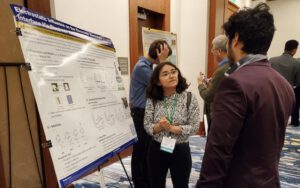
Vanessa Zambrano kickstarted her clean energy career through the CEBR program in summer 2019. Read the full story about the REU experience here!
Program Dates
Please check back in Autumn 2025 for an update on our 2026 programming.
Eligibility
This program is open to U.S. citizens or permanent residents who are 18 years of age or older. Participants should be from Washington state or attending college in Washington state. This program prioritizes non-UW students who have completed one or two years of college, community college, or tribal college.
Stipend
The CEBR Summer Research Experience provides a stipend of $6,300, on-campus housing, a $1,000 meal card, and a $500 travel allowance.
Activities
Students accepted into the full program are expected to work in their designated laboratory for 9 weeks, 40 hours per week to complete an academically appropriate research project designed in conjunction with their advisor. By the end of the nine-week session, students are expected to complete an abstract or summary of their work, a poster and a presentation. Other assignments may be required.
The weekly seminar series hosted by the UW Office of Undergraduate Research will introduce students to the rationale behind research, general research procedures (as needed for each cohort), how to set realistic goals and expectations, and how to handle frustration and setbacks. Students are encouraged to meet frequently with their faculty and graduate/postdoctoral advisors, particularly in the early stages of the program, to precisely define their projects and review lab-specific safety protocols. Students’ project plans will be approved by their faculty advisors by the end of week two.
Students in the CEBR cohort will also gather weekly for a journal reading club, lab tours or presentations. Final reports (abstracts) will be due in the 9th or 10th week, at which time students are required to participate in a final poster session and present their work. These reports will be reviewed by the faculty advisors and posted online.
In addition to the work that students do in the lab, they also participate in seminars, social activities, and field trips that provide them with increased networking and learning opportunities, as well as other enrichment and outreach opportunities sponsored by the Clean Energy Institute. Some students may be eligible to receive academic credit and attend professional conferences to share their work and learn about that of others.
Additional Resources
- Energy Basics Course (requires UW netID)
- Learn about the scientific concepts behind clean energy research.
- Explore other undergraduate summer research opportunities at UW, NSF-funded REU opportunities, and STEM education and training opportunities through Pathways to Science. The Molecular Engineering Materials Center (MEM-C) REU is structured similarly to the CEBR program and involves many of the same research groups at UW. Applicants can forward their application to MEM-C when applying for CEBR, or apply to the MEM-C program directly.
- Meet CEBR participants from previous years.
Outstanding Undergraduate Research Award
CEI created the Outstanding Undergraduate Research (OUR) Award in 2021 to provide select CEBR participants with the opportunity for a second summer CEBR experience, as well as $1,500 to attend a research conference of their choosing.
2023 OURs
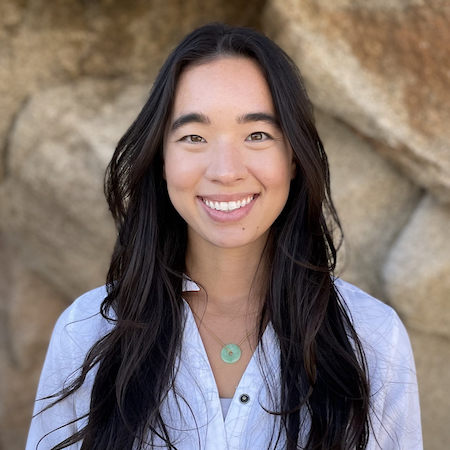
Deserée Lai worked in Dianne Xiao’s lab on metal-organic macrocycles in summer 2023 after receiving her Associates of Science from North Seattle College. She transferred to the University of Washington in autumn 2023 to pursue her bachelor’s degree in physics with interests in quantum materials and condensed matter physics.
2022 OURs

Chris Becraft researched the reactivity of black phosphorus with the overall goal of clean energy transformation in Alexandra Velian’s lab in summer 2022. She is pursuing bachelor’s degrees in chemistry and applied math at the University of Illinois Urbana-Champaign. Becraft accepted a summer 2023 opportunity in the research group of chemical engineering professor Jim Pfaedntner to study the interactions of proteins with ions and surfaces using computer simulations and machine learning.
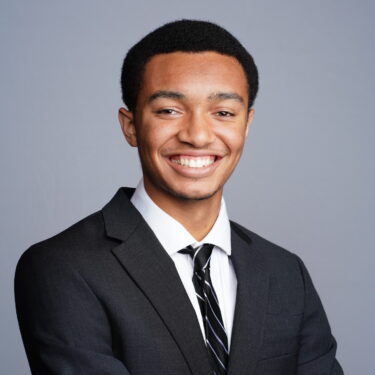
Cade Boggan worked with mechanical engineering professor and Washington Research Foundation Innovation Professor in Clean Energy Corie Cobb in summer 2022. He designed a process to 3D print current collectors for batteries and developed code to analyze images of 3D battery electrodes to estimate dimensions and quality. After completing bachelor’s degrees in physics and mathematics at Howard University, Boggan plans to obtain a Ph.D. in Mechanical Engineering with a focus on generating or storing renewable energy. He will present his research at the January 2024 Joint Mathematics Meeting of the American Mathematical Society.
2021 OURs
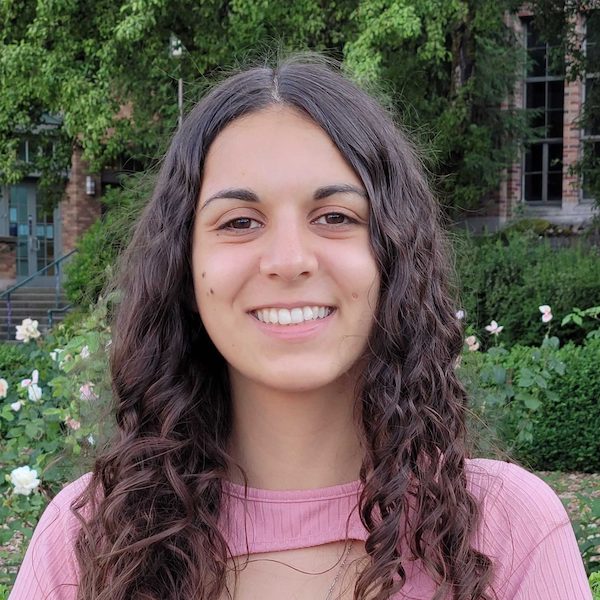
Dina Chehada worked in chemistry professor Dianne Xiao’s research group studying two-dimensional conductive metal-organic frameworks and their potential application as liquid crystals. After completing her Associate of Science degrees in Chemistry, Physics, and Mathematics from Cerritos Community College, she received a scholarship to pursue a Bachelor of Science in Chemistry at the University of California-San Diego.
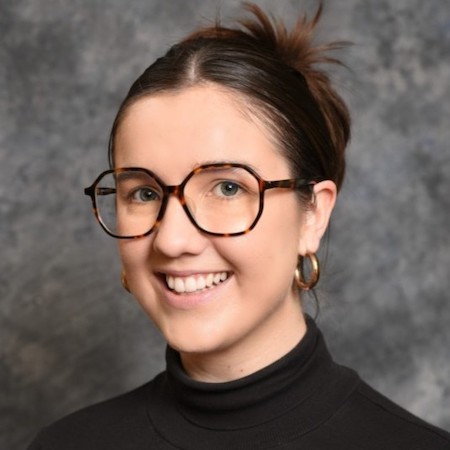
Isabella Friedrichs researched single atom catalysts and clusters in chemistry professor Alexandra Velian’s lab group in summer 2021, and returned to UW for a second research experience with David Ginger’s lab group in summer 2022. She plans to pursue a Ph.D. in chemistry after completing her undergraduate degree in chemistry and biology at Benedictine College.
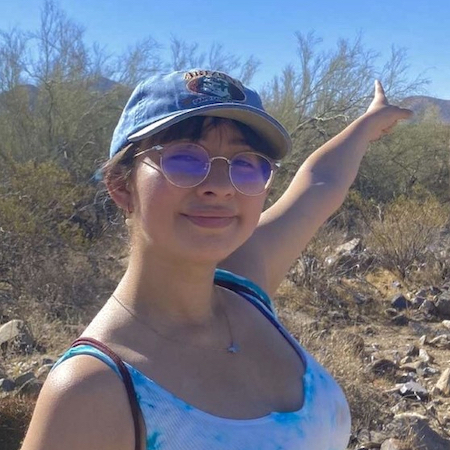
Julisa Juarez worked in David Ginger’s research group to study new perovskite semiconductors for solar energy applications, and returned to UW in summer 2022 to continue her project. After completing her degree in chemistry with a focus on environmental sustainability at Bennington College, she was accepted to UW Chemistry as a doctoral student in the Ginger Lab, earning a prestigious NSF Graduate Research Fellowship and an NSF Accelerating Quantum-Enabled Technologies Fellowship.



